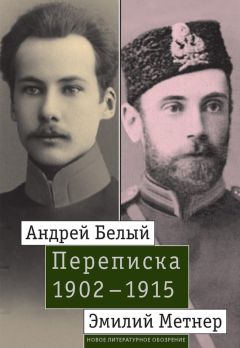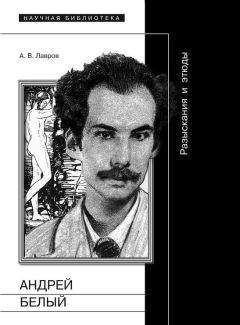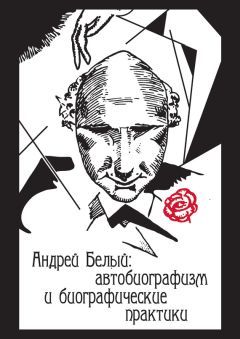Денис Шевчук - Английский язык: самоучитель
I don’t understand. – Я не понимаю.
I can write it / speak English / play the piano. – Я умею (могу) написать это / говорить по-английски / играть на пианино.
Can you spell your name / your surname, please? – Не могли бы вы произнести по буквам свое имя / свою фамилию, пожалуйста?
FOCUS ON GRAMMAR
Активная грамматика
The Noun
Имя существительное
Особенности правописания.
1. Существительное заканчивается на согласный (кроме x, s, sh, ch) – прибавляется s: a student – students.
2. Существительное заканчивается на x, s, sh, ch – прибавляется es: a fox – foxes, a watch – watches, Jones (фамилия) – the Joneses (все члены этой семьи).
3. Существительное заканчивается на f, fe – тогда f меняется на v+es: a wife – wives, a wolf – wolves.
Oсновные исключения из этого правила:
A roof (крыша) – roofs
A chef (повар) – chefs
A chief (шеф) – chiefs
A safe (сейф) – safes
A cliff (утес) – cliffs
4. Существительное заканчивается на гласный – прибавляется s: a house – houses, a cinema – cinemas.
5. Существительное заканчивается на o с предшествующей согласной – прибавляется es: a tomato – tomatoes.
Исключения из этого правила:
A photo – photos
A piano – pianos
A kilo-kilos
6. Существительное заканчивается на y с предшествующим согласным – y меняется на i+es: a city – cities.
Если перед y стоит гласная, то этого не происходит: a day – days.
Особые случаи образования множественного числа (их необходимо запомнить)
A man – men
A woman – women
A tooth – teeth
A foot – feet
A mouse – mice
A goose – geese
A child – children
A sheep-sheep
A deer-deer
A fish– fish
An ox – oxen
Некоторые греческие и латинские заимствования. Основные из них:
Analysis – analyses (анализы)
Crisis – crises (кризисы)
Datum – data (данные)
1. Read the nouns in the plural.
Прочитайте существительные, приведенные во множественном числе.
Rooms, hands, hats, children, fish, boys, books, foxes, horses, brushes, mouths, boxes, potatoes, roofs, steps, computers, bananas, leaves, hoses, feet, watches, baths, minutes, cinemas, dollars, guides, taxis, nationalities, restaurants, squares, cameras, men, women, cassettes, radios, names, telephones, sandwiches, nurses, lawyers, jobs.
2. Write the nouns in the plural form.
Напишите данные существительные во множественном числе.
A farmer
A country
A city
A day
A disc
A leaf
An address
An apple
A lemon
A child
A man
A house
A crisis
A mouse
A tooth
A photo
A kilo
A potato
A chef
A fox
A watch
A theatre
A hobby
A bottle
Language focus 2Numerals
Числительные
Количественные числительные от 1 до 10: 1 – one, 2 – two, 3 – three, 4 – four, 5 – five, 6 – six, 7 – seven, 8 – eight, 9 – nine, 10 – ten.
Количественные числительные от 11 до 19: 11 – eleven, 12 – twelve, 13 – thirteen, 14 – fourteen, 15 – fifteen, 16 – sixteen, 17 – seventeen, 18 – eighteen, 19 – nineteen.
20 – twenty, 30 – thirty, 40 – forty, 50 – fifty, 60 – sixty, 70 – seventy, 80 – eighty, 90 – ninety.
100 – one hundred.
200 – two hundred, 300 – three hundred.
340 – three hundred and forty.
675 – six hundred and seventy five.
1000 – one thousand.
5780 – five thousand seven hundred and eighty.
3. Say the numbers.
Прочитайте числительные.
5, 18, 12, 19, 10, 43, 157, 98, 243, 578, 908, 640, 1600, 287, 53, 90, 13, 4765, 43, 20, 222, 270.
Language focus 3Articles.
Немного об артикле.
Когда мы называем предмет в первый раз и он еще неизвестен собеседнику, мы используем неопределенный артикль a.
Когда мы вторично называем предмет или называем предмет, уже известный собеседнику, мы используем определенный артикль the.
Например: This is a ball. The ball is red.
Артикль a употребляется только с исчисляемыми существительными в единственном числе: a day, a student. С неисчисляемыми существительными употребляется нулевой артикль. Например: This is water. I’d like information.
Если существительное или описывающее его прилагательное начинаются с гласной, то артикль принимает форму «an».
Например: a story, a box. Но: an apple, an orange, an interesting book, an easy task.
Перед именами людей, названиями стран, городов, улиц артикль не употребляется.
4. Fill in the articles «a» or «an».
Вставьте артикли «a» или «an».
1. This is .......lovely day.
2. This is ........small room.
3. I’d like .........apple, please.
4. I want to buy .........ticket.
5. He is .........architect.
6. I’d like .........interesting story.
7. It is ...........international meeting.
8. This is ..........old stamp.
9. She is ...........nurse.
5. Fill in the articles where necessary.
Вставьте артикли, где это необходимо.
1. This is .........camera.
2. This is ..........David.
3. I’d like to change .............money.
4. .........Martin is from ......... Italy.
5. This is .........cinema. ..........cinema is new.
6. I’d like to buy .........orange.
7. My brothers are .........farmers.
8. I want to buy ...........stamp.
9. This is ..........radio. ..........radio is made in Spain.
10. He is in ............ London.
Language focus 4Pronouns this – these, that – those.
Местоимения этот – эти, тот – те.
6. Read the sentences and translate them.
Прочитайте предложения и переведите их.
1. These are computers. .....................................................................................
2. That is my house. ......................................................................................
3. Take those letters. ......................................................................................
4. Those are hotels. .......................................................................................
5. This is a new theatre. ......................................................................................
6. Spell those surnames. .....................................................................................
7. Read these questions. ......................................................................................
8. Put this information on that computer. ......................................................
9. That is a formal document. ...............................................................................
10. This is my guide. .......................................................................................
11. Open those files, please. ..................................................................................
12. I’d like to tell you about those doctors. ...................................................
7. Complete the sentences.
Закончитеданныепредложения.
1. These are.........................................................
2. I’d like to tell you about those................................
3. Where are those...............................................?
4. That is............................................................
5. Put that..........................................................
6. Those are not...................................................
7. This isn’t.........................................................
8. That man is......................................................
8. Look around. Fill in the table with the names of the things that are next to you.
Посмотрите вокруг себя. Впишите в таблицу названия тех предметов, которые находятся рядом с Вами (более близкие this / these и расположенные вдалеке that / those)
READINGAND SPEAKING PRACTICE
1. Now write and speak about these people.
Напишите и расскажите об этих людях.
1. Erica Simons
Great Britain
25, Down Road, Oxford
67-55– 34
30, a son
divorced
Maltex company, a sales manager
to eat out (обедать в ресторане, кафе, т. е. вне дома)
2. Nathalie Guerra
France
4, Goustave avenue, Leon
564-22-08
27
with a boyfriend
a dog Andrea
D.P.X. company, a designer
to search for friends in the Internet
Example: My name is Erica. My surname is Simons. I am from Great Britain. My address is ...
..................................................................................................................
..................................................................................................................
..................................................................................................................
My name is Nathalie. My surname is ...................................................
..................................................................................................................
..................................................................................................................
..................................................................................................................
2. Choose two people you know well. Write and speak about them as if you were each of them.
Выберите из своего окружения двух людей, которых Вы хорошо знаете. Напишите и расскажите о них от их лица.
1. My name is ..........................................................................................
..................................................................................................................
..................................................................................................................
2. ...............................................................................................................
..................................................................................................................
..................................................................................................................
(first name, surname, age, address, marital status (married, single or divorced), job, company you work for, hobby, children)
3. Make up dialogues putting the sentences in the right order.
Составьте диалоги, расставив предложения в логическом порядке.
A.
She is O.K.
How are you?
And how is your wife?
I’m fine, thanks.
B.
Nationality? Oh, I don’t know.
And what is her nationality?
What is her occupation?
She is a secretary.
C.
She is Spanish. She lives in Madrid.
Is she Italian or Spanish?
And what is her occupation?
Is Alice your friend?
Yes, she is.
And can she speak English?
Yes, she can.
She is a guide. She can speak three foreign languages.
D.
And what is your nationality? Where are you from?
It is very nice, thank you.
Oh. It is Jovi.
What is your surname?
What? Sorry, I don’t understand.
Your surname. Your second name.
I’m from Poland.
How is your trip?
4. Read the dialogues and try to remember them.
Прочитайтедиалогиипостарайтесьихвыучить.
A.
Dick: Excuse me.
Anne: Yes?
Dick: Can you tell me the way to the park?
Anne: The park? Oh, it is in front of the hotel.
Dick: Can I drive there?
Anne: Yes. It is ten minutes.
Dick: That’s nice. Thank you.
Anne: Not at all.
B.
Debi: I’d like a ticket to London, please.
Nick: Yes, madam.What is your name, madam?
Debi: Debora. My surname is Denisson.
Nick: Can I see your passport, please?
Debi: Yes, please.
Nick: Thank you.



